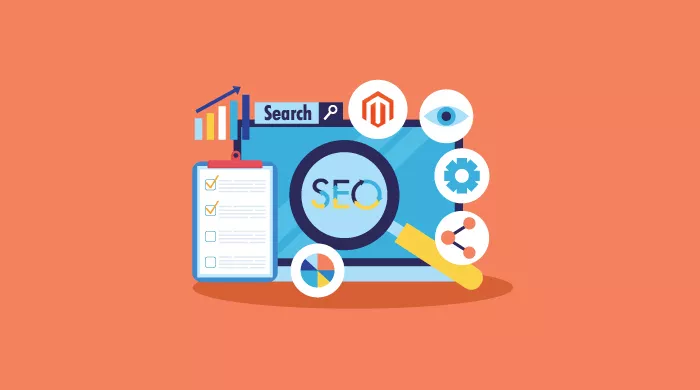For a long time, anyone interested in running their own business had to overcome many financial and logistical concerns. They needed a location for the store, preferably one that is well-situated for attracting maximal traffic with minimal competition or inconvenience. They needed space, or even a separate location, for storing their inventory. Building a new edifice or refurbishing an older one almost certainly required hiring contractors for all kinds of labor, from construction to utilities to furniture. Each of these aspects alone could cost them dearly.
Now, an alternative exists for would-be entrepreneurs: operating a digital storefront on the Internet. This path flattens or eliminates quite a few of the more daunting obstacles, making the world of business more accessible to anyone with wi-fi. Instead of searching for land, aspiring merchants can set up their store on the digital frontier, which never runs out of space. Instead of hiring workers to construct everything, they can quickly set up their store on their own, with an eCommerce solution as the foundation.
Of course, nothing in commerce, e- or otherwise, comes without a cost. Even small businesses that operate entirely online must make tough decisions. Among the most important is which eCommerce solution they select. At the very least, it should be inexpensive and include hosting. Ideally, it should give merchants the ability to develop the store they want and create a shopping experience that keeps customers coming back. Of the many cheap and hosted eCommerce solutions out there, this article seeks to narrow the list down to four exceptional options.
What is an eCommerce Solution?
For anyone unclear on the definition, the term “eCommerce solution” refers to a platform designed to help users build and run an online store. This platform serves as the foundation for your store and defines just about everything you can do with it. By its nature, it could be considered a type of website builder. However, no one should believe that they can simply use just any website builder for this purpose.
As the name implies, eCommerce solutions differentiate themselves by focusing on online stores. They provide users with features, services, and suites, all specifically created for optimizing a store’s ability to sell products. The distinction is important because shopping sites differ greatly from others in their purpose, structure, and needs. A generic website builder can take a merchant somewhere, but it cannot give them everything they need for success like an eCommerce solution could.
What Features Should an eCommerce Solution Offer?
eCommerce solutions typically offer dozens of different features that entrepreneurs may find useful. Though their needs may differ based on their industry and structure, some must-haves include (but are not limited to):
- Catalog Management: The strategic organization of products into categories and further subdivisions as needed. Proper use of catalog management programs will make it easier for customers to find products that fill their needs or match their desires.
- Inventory Control: Software can keep users up-to-date on the status of every item in their inventory. It should be connected to every point of sale (POS) that the business operates.
- Marketplace Integrations: It is the ability to sell products on online marketplaces. Many people conduct online shopping on such marketplaces as Amazon, Facebook, and eBay. Creating channels on these sites can increase sales and visibility for the business.
- Payment Processors: Gateways that take care of transactions between businesses and customers. eCommerce websites should provide as many payment options as possible, so finding an eCommerce solution with many processors is vital.
- Shipping Management: It can provide total oversight on the shipping process, including where orders are and where they are headed. Making sales is nothing if an online business cannot transport products to its customers. Shipping management software can keep both the vendor and the buyer informed and comfortable.
- Marketing Management: It includes everything to do with raising awareness of and drawing visitors to the website. Companies can conduct campaigns through pay-per-click (PPC) advertisements, social media promotion, targeted email blasts, and other methods. Marketing tools give them the means to generate publicity effectively.
- Refund Management: These are the tools that create a smooth refund process. Studies show that most customers consider a convenient and customer-friendly returns process to be an essential factor for where they do their online shopping.
- Analytics Software: Programs that track customer behavior and report data to the vendor. A savvy business owner can use this data to see what is working, what could use more refinement, and what customers really want. It can remove much of the guesswork of running an eCommerce website.
Just about every worthwhile eCommerce solution includes all of these features, among many others. However, some of them reserve certain essentials for higher pricing plans as a way of enticing potential customers to pay more per month. Others even excise these features entirely, instead offering apps and integrations to fill holes that the solution’s developers should have filled themselves. Merchants should find a platform that gives them what they need for a fair price.
What Does It Mean to Have Hosting?
One could view an eCommerce website as a plot of land on the digital frontier, with the eCommerce solution as the foundation. Building from this metaphor, the company behind the solution is like the landlord, taking payment in exchange for permission to use their software. Platforms with this arrangement are considered “hosted.” Rather than asking anyone to download a program with everything on it, the company develops cloud-based software. It lets people access it through the Internet.
Creating a website on a hosted eCommerce solution means keeping all your files on their servers. Companies with this set-up have a strong motivation to make sure that websites never go down for long and always keep their technology up-to-date. As a result, users have less to worry about on that side, and they can concentrate on building the best store they can. Hosting arrangements also usually come with their own domain, regular back-ups, easy file access, and high-end security.
4 Cheap Hosted eCommerce Solutions
-
PinnacleCart
PinnacleCart, founded in 2003, is unusual for offering both a hosted version and a licensed version of their software. Anyone handling their own hosting can sign up for the latter, which comes with the same features. It should work fine as long as they have the technology needed to store their data. If this option is unfeasible, then having them host the website should be sufficient.
This solution offers three plans, with Standard as the lowest-priced at $79.95 per month. Users get unlimited categories and products under this plan, as well as 10 GB of storage and 20 GB of bandwidth (more can be purchased). They also bundle a shared SSL certificate, meaning a certificate used by all PinnacleCart websites. Other features include real-time shipping, tracking for supplies and orders, marketplace access, and three payment gateways.
Shift4Shop is notable for being among the oldest operating eCommerce platforms, with over two decades of continuous development. Hundreds of integrations are available through their app store, but unlike certain solutions, this one is not dependent on it. The solution is unusually comprehensive, offering dozens of built-in features — including over 100 payment processors, more than any other platform of its kind. PCI compliance, SSL security, DDoS protection, near-100% uptime, and fast load times are packaged with their hosting, handled through Cloudflare.
The Startup plan, which costs $19.99 per month, comes bundled with many of the essentials for eCommerce stores. These features include inventory control, search engine optimization (SEO) tools, checkout design options, saved carts, and real-time shipping, among others. It also allows for unlimited bandwidth, categories, and products, letting users build a website as big as they dare to dream. An even cheaper option, priced at $9.99 per month, exists specifically for dropshipping stores.
-
BigCommerce
Formerly known as Interspire, BigCommerce offers a Standard plan of $29.95 per month. Signing up with this hosted solution will give the user a dedicated SSL certificate, meaning one specifically for that user’s website. Storage, products, and bandwidth are unlimited from the beginning, and access to both various marketplaces and around 50 payment processors is also available.
While certain essential features, such as organizing customers into groups and saving abandoned carts, are relegated to higher payment plans, the Standard plan still delivers. The site builder software is designed to permit plenty of customization. Beginners can get started with ease while those with HTML and CSS experience can go even further. Store owners on the go may also benefit from BigCommerce’s mobile app.
-
Lightspeed
In addition to POS systems for restaurants and retail stores, Lightspeed also offers its own hosted eCommerce solution. It is bundled with their retail POS from the Starter plan onwards, so Lightspeed may be best for entrepreneurs who want both physical and digital storefronts. The Starter plan itself costs $119 per month, but going with the annual plan brings the monthly cost down to $99.
Accounting software, loyalty programs, and advanced analytics are only available on higher plans. With that said, those are the only features from Lightspeed eCommerce that are hidden behind additional paywalls. The solution allows for HTML and CSS customization and lets users change templates without losing their page contents. Moreover, it comes with features for inventory management, order tracking, international shipping, and basic data reporting.
In Summary
Choosing the right eCommerce solution requires considering what your website needs and seeing how much the platform meets those needs. The four solutions described here are only a few among many, and aspiring entrepreneurs may want to cast their nets widely in their search. With that said, Shift4Shop, PinnacleCart, BigCommerce, and Lightspeed all provide plenty of features on a hosted solution at a relatively low cost. Assessing each of these options is a good place to start.
Anyone interested in learning more about these and other platforms can find plenty of information right here at Goodfirms. This website features, among other useful resources, a comprehensive list of eCommerce software. Even more information on even more solutions is available in the Goodfirms directory of software categories.








